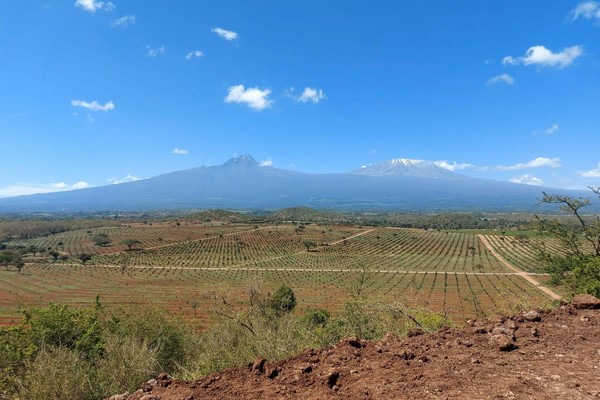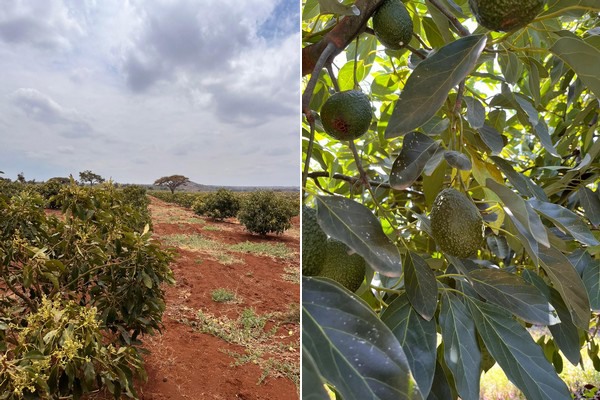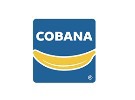The supply situation on the global avocado market is currently extremely tight. Felix Sperl, product specialist in the exotic sector at the Hamburg-based import company Cobana, explains: "Due to the large stocks in Peru, a lot of promotions were run in the retail sector during the summer months, which in turn drove up demand. From week 35 onwards, towards the end of the Peruvian season, arrivals then dropped off massively and a corresponding gap opened up. In Chile, goods are being shipped rather cautiously this year and at a higher price level, and less volume than usual is also coming from Israel at the moment due to the war situation. All in all, prices have more than doubled compared to the summer. This is because the avocado market is simply empty - there is currently no spot market for the sizes in demand."
The situation is also due to the difficult conditions in the other source countries, Sperl continues. "There have been strikes in Guatemala, while Mexico is struggling with storms. Due to El Niño, there have also been significantly lower yields in Colombia over the past two years. This means that production there is growing, but harvest volumes tend to decrease. In addition, around 70 percent of the produce is rather small - 22 to 30 caliber. East Africa - Kenya and Tanzania - is now through with the harvest. Interestingly, El Niño tends to have a positive effect there, which means that they tend to start the season earlier, around December."
 An avocado plantation in Kenya, with Mount Kilimanjaro in the background
An avocado plantation in Kenya, with Mount Kilimanjaro in the background
Tense mango market
The supply situation for mangoes is also coming under increasing pressure. "This will become apparent at the turn of the year, as soon as the Peruvian season gets going. El Niño has prevented the blossoms in the north from developing properly, which is why there will be serious harvest losses. The same applies to the south, although the situation here is not expected to be quite as extreme." The current season in Brazil is also characterized by major challenges.
Sperl: "There are repeated shipping delays and the spot prices at the source have risen sharply as well. The latter is due to the fact that the US and Asia have expanded their procurement sources and are now increasingly sourcing goods from Brazil. Traditionally, these markets will also buy from Ecuador, but those volumes are smaller due to the climatic conditions. This in turn affects the European market, where we are now faced with unprecedented price rises. Due to the shortage, we are trading the Palmer variety in addition to the usual Kent and Keith mangoes."
The high prices are having a corresponding effect on demand. "We are already noticing that sales of mangoes in food retail are dropping due to the prices. Interestingly, this is not the case with avocados. The price increases have not led to a significant drop in demand." To make matters worse, energy prices have risen exponentially in some cases, which is particularly noticeable in exotic ripening. "We were therefore forced to calculate the additional costs and have now also found models. The next cost driver will be the upcoming toll increase."
 Avocado production: The Hass variety is still by far the most consumed variety in Germany.
Avocado production: The Hass variety is still by far the most consumed variety in Germany.
Growth potential for avocados
Due to the year-round availability, demand for both products is quite stable throughout the year. In general, there have been massive increases in avocados in particular over the past decade, largely due to investments in ripening technology and ready-to-eat quality. "There were years in which the German market grew by 60-70 percent. In the meantime, per capita consumption in Germany has leveled off at a level of 1.3 kg/year, which is still less than in France (1.8 kg/year) or Scandinavia (>2 kg/year), for example. In this respect, I still see growth potential, although these growth rates from the past will no longer exist," Sperl concludes.
Pictures: COBANA GmbH & Co. KG
For more information:
Felix Sperl
COBANA GmbH & Co. KG
Neue Burg 2
20457 Hamburg
Tel.: 040/30 30 5 - 0
Fax: 040/30 30 5 - 197
info@cobana.com
www.cobana.com
